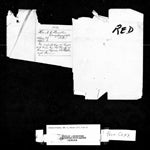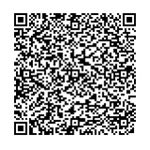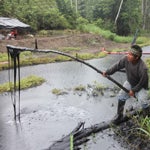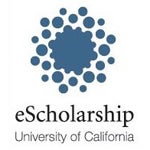This year the UC Davis Department of Native American Studies will host the official meeting of the Native American and Indigenous Studies Association (NAISA). The conference will be held at the Hyatt Regency in Sacramento, California. For more information go to http://naisa.nas.ucdavis.edu/
Re-Activating Insurgent Learning
RE-ACTIVATING INSURGENT LEARNING: interculturality, indigenous autonomy, & grassroots globalization
Date: February 22
Time: 12 noon
Location: 126 Voorhies Hall UCD
A ROUNDTABLE DISCUSSION WITH:
- Gustavo Esteva, universidad de la tierra OAXACA
- Manolo Callahan, chicana/o studies UCSB
- marisol de la cadena, anthropology UCD
FREE & OPEN TO THE PUBLIC
SPONSORED BY: DHI & Estudios Culturales en las Américas Research Cluster
Owners of the Water: Conflict and Collaboration over Rivers
In celebration of the Native American Studies Department 40th anniversary at UC Davis, Laura R. Graham screened her collaborative documentary film “Owners of the Water: Conflict and Collaboration over Rivers.”
The film is available for purchase at Documentary Educational Resources.
You can preview the documentary at YouTube.
English:
Fundador del IRCA recibe distinguida medalla
El Dr. Stefano Varese, fundador del IRCA y Profesor Emérito de UC-Davis, fue galardonado con la Medalla Haydee Santamaría por el Consejo de Estado de la República de Cuba en reconocimiento a sus contribuciones intelectuales a las Américas.
Vea la historia completa aquí:
IRCA founder receives distinguished medal
Dr. Stefano Varese, founder of IRCA and UC-Davis Professor Emeritus, was awarded the Haydee Santamaría Medal by the Council of State of the Republic of Cuba in recognition of his intellectual contributions to the Americas.
See the full story here:
Dr. Varese to speak at international conference
Date: Monday, May 28, 2018
Undefined
IRCA founder and Associate Director, Professor Emeritus Stefano Varese, will be speaking at the international conference with comparative analysis of the Indigenous Palestinian People and the Andean-Amazonian Indigenous peoples in his talk “El Estado oligárquico y las naciones indígenas en el Perú neo-liberal.”
Standing Rock Teach-in
Date: Tuesday, November 15, 2016
English
Open community event in the UC Davis Art Annex, everyone is welcome. Please share widely. Refreshments will be served and the teach-in will include:
- Welcome
- Reports, updates, photos from the folks returning from Standing Rock
- Q&A, updates
- Discussion of what the Davis / UC Davis community can do to send supplies, support.
- Paper, envelopes, and lists of letter writing targets will be provided. Attendees are encouraged to bring their laptops and devices to join in a collective letter writing blitz.
Bring your questions, ideas, and friends. Anyone interested is welcome to stay afterward to talk to others, join working groups, or learn other ways to help.
Hosted by the UC Davis Indigenous Research Center of the Americas (IRCA), the Department of Native American Studies, and the Strategic Native American Retention Initiative, among other allies.
The Art Annex is located south of the Art Building and about halfway between the Memorial Union and Mrak Hall on the UC Davis campus.
http://campusmap.ucdavis.edu/?b=21
Pollinating Ríos Vivos y Mesoamérica Resiste
Date: Sunday, November 15, 2015
English
Director of IRCA awarded Mellon New Directions Fellowship
Dr. Liza Grandia is one of 13 national winners of the 2017-18 Mellon New Directions Fellowship for her proposed interdisciplinary research on “Toxic Trespass” [download here]
Read the news announcement from UC Davis, and interview with the Director of IRCA, Dr. Grandia.
Workshop/Conference “All our Relatives: Indigenous Peoples Epistemologies in Dialogue”
Undefined
UC Davis Campus: June 2 and 3, 2010
IRCA, NAS, the Collège de France (chaire d’Anthropologie de la nature), and the Laboratoire d’Anthropologie sociale (Paris) are convening a two-day workshop/conference on Indigenous Peoples Epistemologies in Dialogue as part of a research project sponsored by the France-Berkeley Funds. The purpose of the workshops is to expand and deepen an on-going dialogue that Anthropology and Native American/Indigenous Studies have maintained with the indigenous communities of the Americas on the epistemic challenges posed by indigenous peoples’ modes of knowledge and the interrelated cultural and social practices.
This particular field of the relation Culture-Nature among the Amerindians of the Amazon, the Andes and Mesoamerica has produced analytical studies that have both enlightened and questioned the structures and dynamics of the dualist paradigm that has dominated the last centuries of Euro-American science and humanities. The larger conceptual frame of this workshop/conference is the idea that indigenous peoples that are still deeply rooted in rural areas across the Americas either as horticulturalists and foragers – mostly in the tropical lowlands of South America – or as members of agrarian communities – indigenous peasants of the Andes and Mesoamerica – during millennia have developed cosmologies, gnosis and praxis that do not follow dualist Aristotelian worldviews nor the Judeo-Christian habit that separates nature from humanity, but rather an integrative cosmology that “animates” the whole universe as a socio-cultural dynamic construction. Philippe Descola has re-introduced the idea of “animism” as opposed to “naturalism” to describe this indigenous worldview and epistemology, whereas Stefano Varese has used the neologism “cosmos-centric” as opposed to “anthropocentric” to illustrate the same phenomenon. Although these types of ethnographic reasoning and techniques are not new in anthropology and have been practiced since the early 20th century, a renewed combination of historical-cultural analysis with bioscience and ecology is beginning to shed light on fundamental qualitative differences between environmental management, production and consumption in indigenous societies and contemporary industrial and post-industrial societies in their relations with nature for the same purpose of production, distribution, consumption and ultimately survival. Profound, comparative and thick ethnographic analyses of indigenous cosmologies, epistemologies and praxis – with the assessment of their success or failure- may certainly hold key interpretive elements of our own “modern” bio-cultural biases and contribute to redress fundame.
DOCUMENTS
All Our Relatives project description PDF.
Documento de trabajo PDF
Flyer for print quality in PDF format
PROGRAM
Wednesday, June 2
5:30-7:30 pm.
AGR Room, Buehler Alumni Center
Public Lecture and Reception:
Societies, Wholes, Collectives: an Ontological Perspective.
Professor Philippe Descola, Laboratoire d’anthropologie sociale and Collège de France, Paris
Thursday, June 3
9:00 am-1:00 pm.
Risling Room, 3201 Hart Hall
Panel Discussion:
Indigeneities as Other Knowledges
Participants:
- Philippe Descola, Lab. d’antropologie social, Paris
- Verena Stolcke, U. Autónoma de Barcelona
- Alexandre Surrallés, Lab. d’antropologie social, Paris
- Montserrat Ventura I Oller, U. Autónoma de Barcelona
- Victor Montejo, NAS-IRCA, UC Davis
- Inés Hernández-Avila, NAS-IRCA, UC Davis
- Bettina Ng’weno, AAS, UC Davis
- Julio López-Maldlonado, IRCA
- Everardo Garduño, U. Autónoma de Baja California,
- Marisol de la Cadena, Anthropology, UC Davis
Discussants: Stefano Varese, NAS-IRCA, UCD & Guillermo Delgado, UC Santa Cruz
Coffee break: 10:30 – 10:45 am
Primarily funded by the France-Berkeley Funds, and sponsored by the Indigenous Research Center of the Americas-IRCA, the Department of Native American Studies-NAS, and the Hemispheric Institute on the Americas-HIA.









